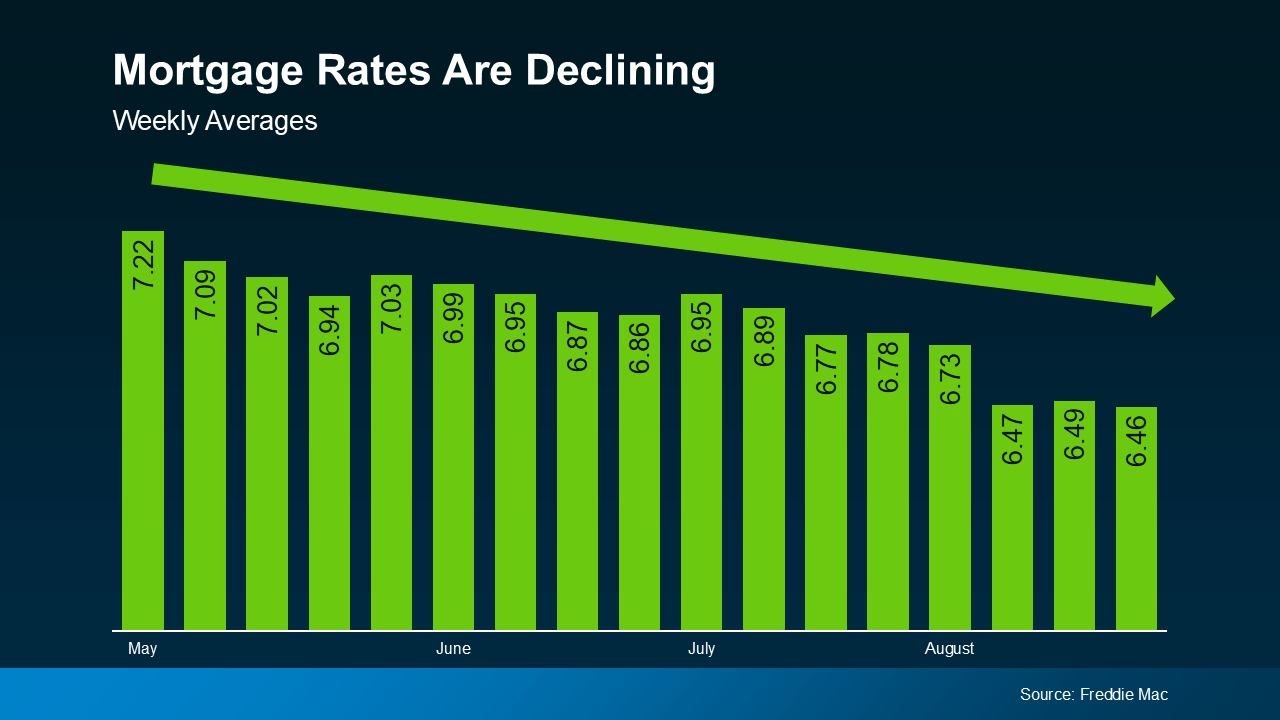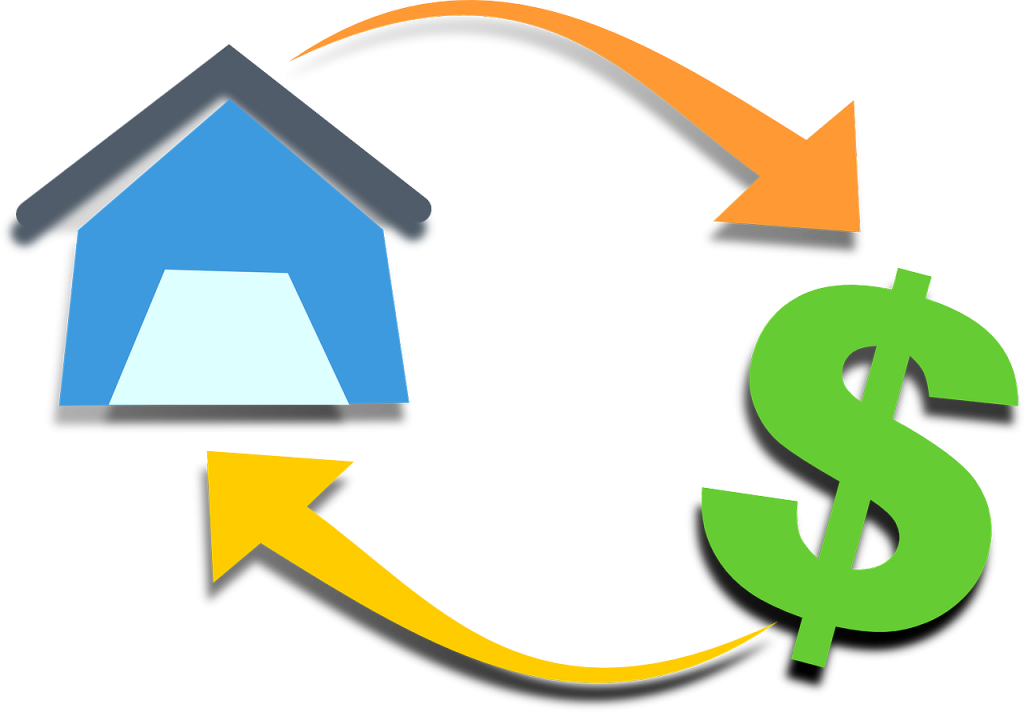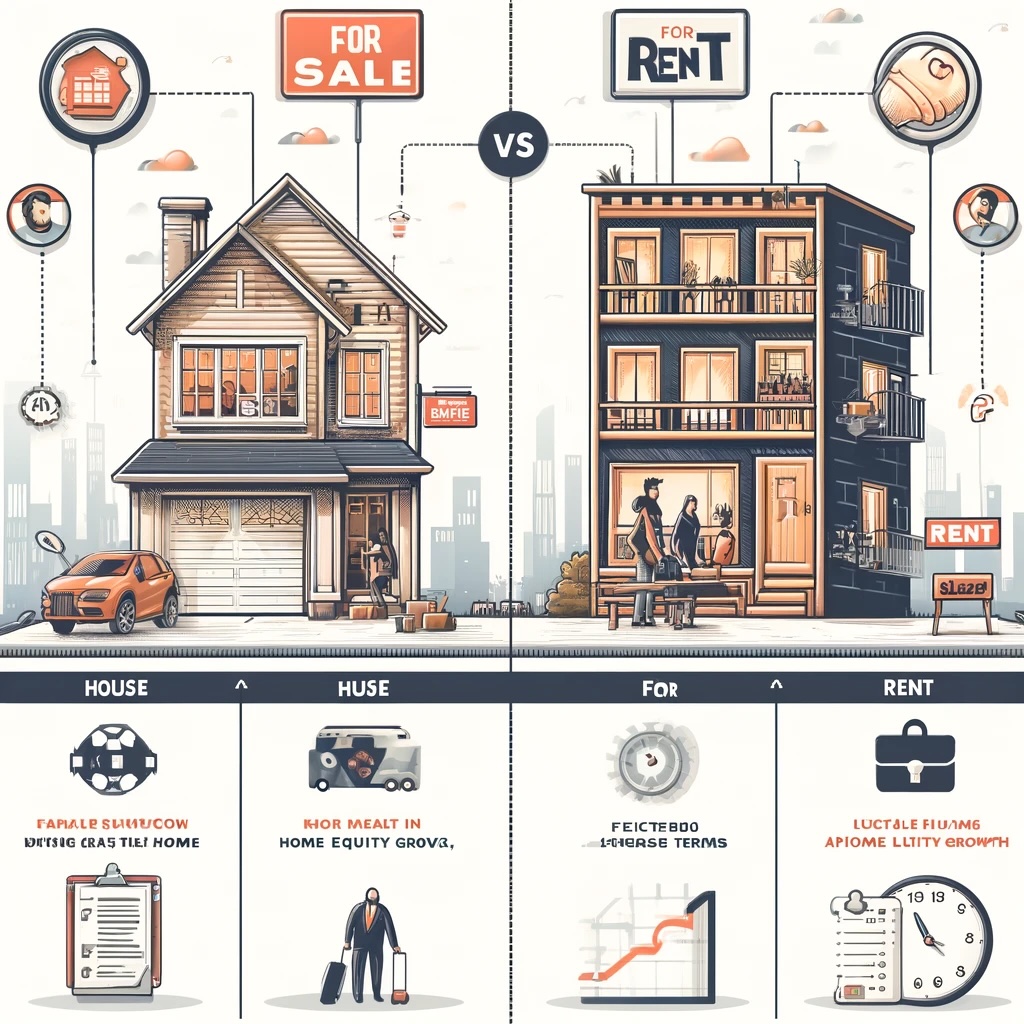Buying Over Renting a Home: Making the Right Choice
Deciding between buying and renting a home is a significant financial and lifestyle decision. Each option has its advantages and drawbacks, and the right choice depends on individual circumstances, preferences, and long-term goals. This comprehensive guide delves into the benefits of buying over renting, highlighting key considerations to help you make an informed decision.
Buying vs Renting a Home
Choosing to buy or rent a home involves weighing several factors, including financial stability, long-term goals, lifestyle preferences, and market conditions. While renting offers flexibility and lower upfront costs, buying a home can provide long-term financial benefits, stability, and the opportunity to build equity.
Advantages of Buying a Home
Financial Investment
One of the most compelling reasons to buy a home is the potential for financial investment. Homeownership allows you to build equity over time, which can be a valuable asset. Unlike rent payments, which provide no return on investment, mortgage payments contribute to owning a tangible property.
Building Equity
Every mortgage payment increases your home equity—the portion of the property you own outright. As you pay down your mortgage, your equity grows, providing you with financial leverage and potential borrowing power for future investments or renovations.
Stability and Security
Homeownership offers a sense of stability and security that renting cannot match. Owning a home means you won’t face unexpected rent increases or the possibility of a landlord deciding to sell the property. This stability is particularly valuable for families and individuals seeking a long-term residence.
Personalization and Customization
When you own a home, you have the freedom to personalize and customize it to suit your tastes and needs. From renovating the kitchen to landscaping the garden, homeowners can create a living space that reflects their personality and lifestyle.
Tax Benefits
Homeownership comes with several tax benefits, including deductions for mortgage interest and property taxes. These deductions can significantly reduce your annual tax liability, making homeownership more affordable in the long run.
Financial Aspects of Homeownership
Initial Costs
Buying a home involves several initial costs, including a down payment, closing costs, and fees for inspections and appraisals. While these costs can be substantial, they are often offset by the long-term benefits of homeownership.
Mortgage Payments vs. Rent Payments
Mortgage payments contribute to building equity, while rent payments do not. Over time, the cost of renting can exceed the cost of owning, especially in markets where property values are appreciating.
Long-term Financial Planning
Owning a home can be a crucial component of long-term financial planning. With a fixed-rate mortgage, your monthly payments remain stable, unlike rent payments, which can increase over time. This predictability allows for better financial planning and budgeting.
Equity and Appreciation
Understanding Equity
Equity is the difference between the market value of your home and the amount you owe on your mortgage. As you pay down your mortgage and your home’s value appreciates, your equity increases, providing you with a significant financial asset.
Home Appreciation Trends
Historically, real estate has been a solid investment, with home values generally appreciating over time. While there are no guarantees, many homeowners see significant returns on their investment, particularly in desirable locations.
Stability and Community
Long-term Residency
Owning a home often leads to long-term residency, fostering a sense of community and belonging. Homeowners are more likely to invest in their neighborhoods, contributing to community stability and improvement.
Community Involvement
Homeownership encourages community involvement, as homeowners have a vested interest in the well-being of their neighborhood. This involvement can lead to stronger community ties and a better quality of life.
Personalization and Customization
Home Renovations
Homeowners have the freedom to undertake renovations and improvements, enhancing their living environment and potentially increasing the property’s value. From minor updates to major remodels, the possibilities are endless.
Landscaping and Outdoor Spaces
Owning a home allows you to create and maintain outdoor spaces, such as gardens, patios, and play areas. These spaces can enhance your lifestyle and provide a sanctuary for relaxation and recreation.
Tax Benefits of Homeownership
Mortgage Interest Deduction
One of the significant tax benefits of homeownership is the mortgage interest deduction. Homeowners can deduct the interest paid on their mortgage from their taxable income, reducing their overall tax liability.
Property Tax Deduction
In addition to the mortgage interest deduction, homeowners can also deduct property taxes from their taxable income. This deduction can further reduce the cost of homeownership and make it more affordable.
Advantages of Renting a Home
Flexibility
Renting a home offers unparalleled flexibility, making it an ideal choice for individuals who anticipate relocating frequently or who are not ready for the long-term commitment of homeownership.
Lower Initial Costs
Renting requires lower initial costs compared to buying a home. Renters typically need to pay a security deposit and the first month’s rent, whereas homebuyers must cover a down payment, closing costs, and other fees.
Maintenance and Repairs
One of the significant advantages of renting is that maintenance and repairs are typically the landlord’s responsibility. This can save renters both time and money, as they do not need to worry about the costs associated with home repairs.
Access to Amenities
Many rental properties, particularly apartment complexes, offer a range of amenities such as swimming pools, fitness centers, and recreational areas. These amenities can enhance the rental experience and provide added value.
Flexibility and Mobility
Ease of Relocation
Renting provides the flexibility to move with relative ease. Lease agreements can be short-term, allowing renters to relocate without the complexities of selling a home.
Short-term Leases
Short-term leases offer renters the opportunity to test different living arrangements and neighborhoods without committing to a long-term investment. This flexibility is particularly beneficial for young professionals and individuals in transitional phases of life.
Lower Initial Costs
Security Deposits vs. Down Payments
Renting typically requires a security deposit, which is usually refundable, whereas buying a home requires a substantial down payment. This lower initial cost makes renting more accessible for those with limited savings.
Avoiding Closing Costs
Renters avoid the various closing costs associated with buying a home, such as appraisal fees, title insurance, and legal fees. This can result in significant cost savings.
Maintenance and Repairs
Landlord Responsibilities
In rental agreements, landlords are generally responsible for maintenance and repairs. This can be a considerable advantage for renters, who do not need to worry about unexpected repair costs or the hassle of arranging for maintenance services.
Cost Savings
By not having to pay for maintenance and repairs, renters can save a significant amount of money. This cost savings can be redirected towards other financial goals, such as saving for a future home purchase or investing.
Access to Amenities
Apartment Complex Features
Many apartment complexes offer a range of amenities, such as swimming pools, fitness centers, and communal spaces. These features can enhance the living experience and provide added value without the additional costs associated with homeownership.
Urban Living Perks
Renting in urban areas can provide access to vibrant city life, including proximity to work, entertainment, dining, and cultural events. This convenience is a significant draw for many renters.
 The Impact of High-Interest Rates:
The Impact of High-Interest Rates:
 Facebook
Facebook
 X
X
 Pinterest
Pinterest
 Copy Link
Copy Link























